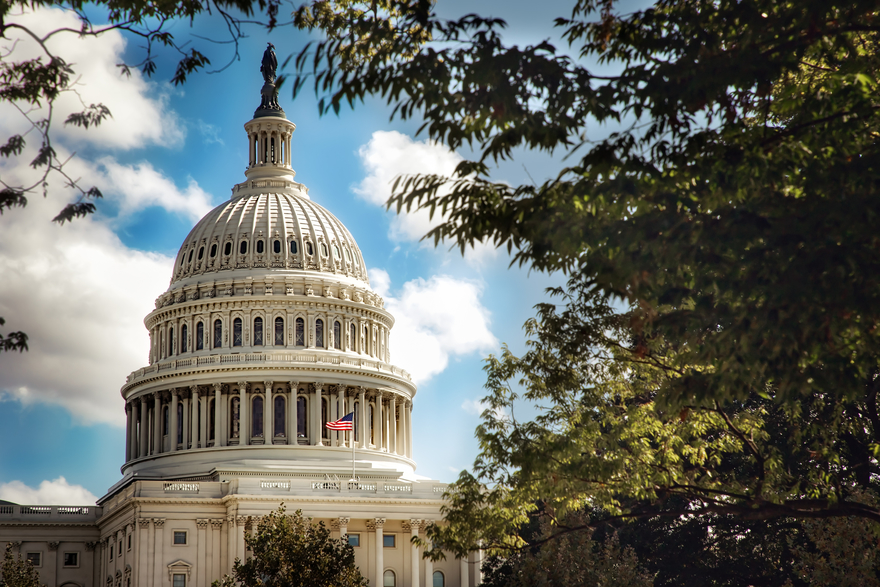Lawmakers for both parties say they aren’t giving up on legislation to tackle surprise medical bills and drug prices, big priorities for voters. Image: Getty Images/Bill Chizek
by Robert King
Source: www.fiercehealthcare.com, December 2020
Lawmakers are turning their calendars to May as the next logical place to get through legislation to tackle surprise medical bills and drug prices.
But first they must mend major differences on the top healthcare priorities.
Congress is expected to pass a major spending bill this week that does not include any legislation on drug prices or surprise medical bills, despite both having wide bipartisan support. Lawmakers expressed disappointment on Tuesday at the delay but emphasized they aren’t giving up.
May is being floated as a new opportunity because the spending deal, which passed the House on Tuesday and moves to the Senate, only funds community health centers until then. Lawmakers tend to look for a must-pass legislative vehicle to attach other bills.
“I am going to do everything I can to keep surprise medical billing on the front burner between now and May,” HELP Committee Chairman Sen. Lamar Alexander, R-Tenn., told reporters on Tuesday.
RELATED: One reason why surprise billing solutions are so tricky for hospitals
The HELP committee had reached a deal with the House Energy & Commerce Committee on a bipartisan package to tackle surprise medical bills. While the issue has wide bipartisan support, providers and staffing companies backed by private equity firms launched massive lobbying and ad campaigns to oppose how they are paid for an out-of-network charge.
Providers want to use an independent arbiter to determine the out-of-network charge and payers favor a benchmark median rate.
Earlier versions of legislation that passed HELP did not include arbitration, sparking a massive opposition effort from providers.
But HELP and Energy & Commerce reached a bipartisan deal last week to include an arbitration backstop that would set up arbitration for bills more than $750. Alexander said that the arbitration compromise “should have been sufficient to gain enough support to pass the bill.”
But the spending package, which does repeal three Affordable Care Act taxes, doesn’t include the legislation.
RELATED: Verma questions limit of high launch prices for new drugs
Both payers and providers strongly objected to the compromise, with payers against any kind of arbitration and providers opposing the benchmark rate. Both sides believe that the other will game the system to raise prices for patients.
Another hurdle was the announcement last week that the House Ways & Means Committee is working on its own surprise billing package. The details for the package are not known yet, but a release from the committee said that it will include an “independent, mediated negotiation process to resolve billing disagreements.”
Alexander wouldn’t say if he has talked to Ways & Means, noting that it is an issue that is “up to the House to resolve.”
Rep. Greg Walden, R-Ore., the top Republican on Energy & Commerce, told FierceHealthcare that he has talked with his counterpart Rep. Kevin Brady, R-Texas, the top Republican on Ways & Means.
“We are going to get together and talk about their principles,” Walden said. “I think we can find common ground.”
Walden declined to speculate on whether the committees will make changes to the legislation to suit Ways & Means.
Walden said that the May health funding reauthorization could be a vehicle to add surprise billing but added there could be others too throughout the year.
Lawmakers appear to have a wider disagreement on how to handle drug prices.
The House passed the Elijah Cummings Lower Drug Costs Now Act last week by a largely partisan margin, and the legislation is likely to be dead in the Senate.
But a bipartisan deal in the Senate has also run aground.
Sens. Chuck Grassley, R-Iowa, and Ron Wyden, D-Ore., crafted legislation that would put an inflation cap on Medicare Part D drug prices. But even though the legislation made it through the Senate Finance Committee, which Grassley chairs, Senate Majority leader Mitch McConnell has not brought it to the floor.
“Mitch McConnell consistently has been willing to choose big pharma that has fought Sen. Grassley and I so hard over the consumer getting mugged at the pharmacy counter,” Wyden lashed out to reporters on Tuesday.

